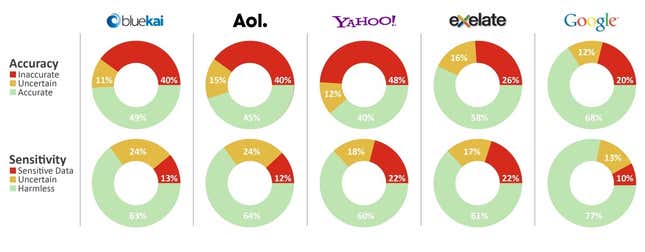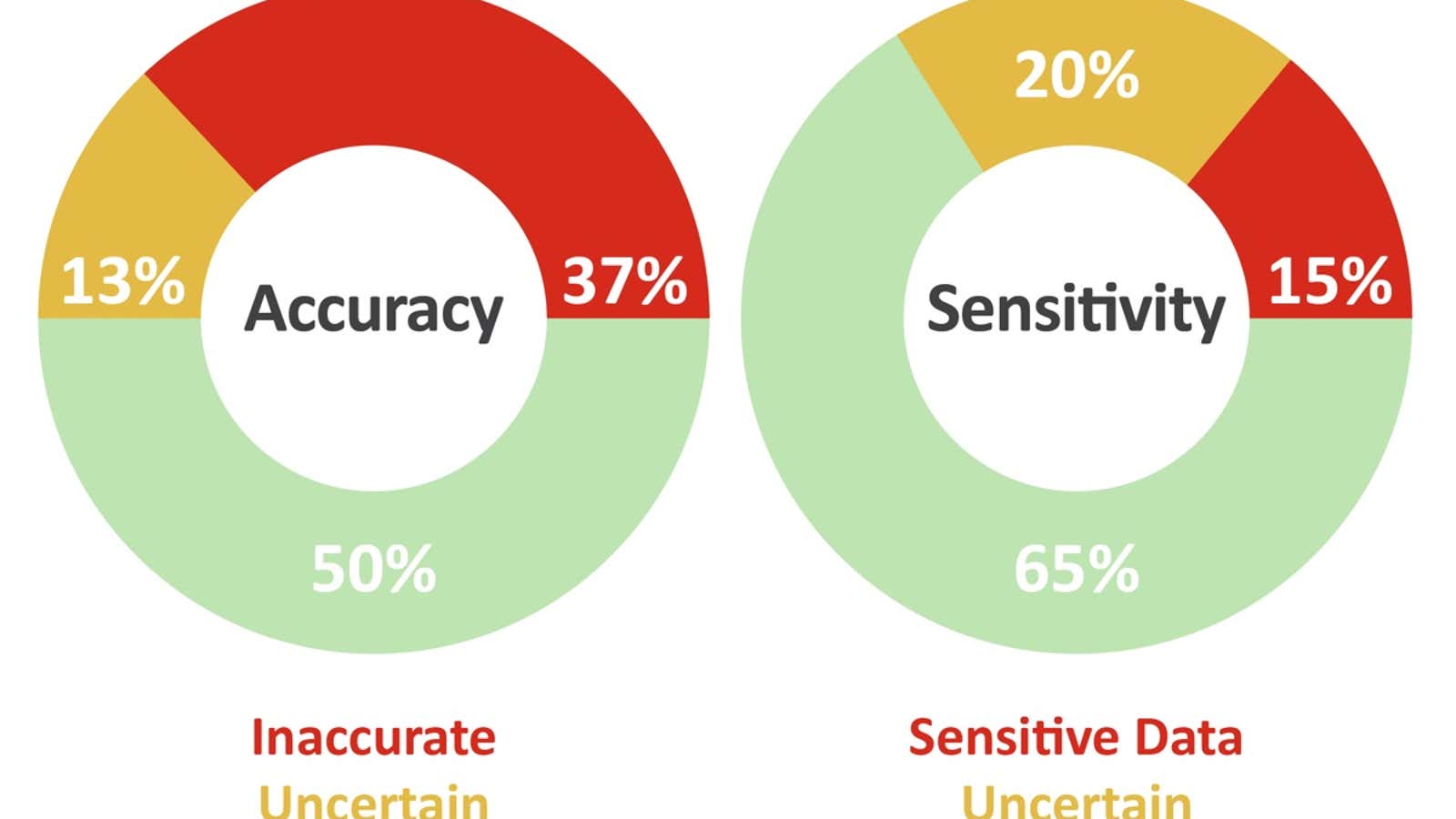Considering that they’ve never explicitly asked us about our preferences, it’s a minor miracle of big data that web advertising companies know anything about us at all. But at least half of the things they think they know about you—from your political preferences to your affinity for ladies’ fashion—could be wrong, and sometimes hilariously so.

Or at least, that’s what data from a survey put out by a firm called Enliken would suggest. Because Enliken’s business is getting people to give up more-accurate data about themselves in exchange for access to content, and because the survey wasn’t very big—covering just 116 people and about 9,000 data points—I took the survey myself in order to see whether ad targeting firms’ notions about my preferences were as inaccurate as Enliken suggested.
The survey included more than 50 different data points gathered by a variety of tracking companies, from my interest in travel to my preference (or not) for Skyy Vodka. My own results weren’t as damning as Enliken’s overall numbers—only 26% of the data about me was obviously wrong—but many individual data points were laughably wrong. I am anything but, for example, an auto fanatic and a hard core sports fan—whereas some ad targeting firms (Enliken doesn’t say which) pegged me as such.
Data from the overall survey of 116 people also suggests that not all tracking firms are created equal. If these numbers are accurate, last-place finisher Yahoo was almost twice as likely to be wrong about a person’s preferences as first-place Google. (We’ve reached out to Yahoo for comment, and will update this once we hear back from them.)

Enliken is part of a larger trend, including “data locker” companies like Personal.com, that think people will give advertisers what they crave—accurate information about who they are and what they might like to buy—if people trust the intermediaries who gather that data.
